Māori Land March 1975
Where can I find information about the Māori Land March in 1975?
(Years 7-10)

Image: Māori Land Marchers crossing Auckland Harbour Bridge by Archives New Zealand Te Rua Mahara o te Kāwanatanga on DigitalNZ.
Entry last updated: 6/11/25
Introduction
On 13 September 1975, around 5000 people marched from Te Hāpua in the North Island down to Parliament in Wellington. This Māori land march or hīkoi (march) led by Ngāpuhi leader Dame Whina Cooper was to protest against the loss of Māori land. On arriving in Wellington on 13 October, they presented a petition signed by 60,000 people to Prime Minister Bill Rowling.
General websites
These New Zealand websites are the best way to look for information about significant events such as the 1975 Māori Land March. Here you can find out what happened, why it happened and who led it.
Te Ara: The Encyclopedia of New Zealand
Te Ara is an excellent starting point for all questions about Aotearoa New Zealand. If we scroll down to the bottom of the page, we can see that the website belongs to the Ministry for Culture & Heritage, so the information is well-researched and reliable.
Start by entering the keywords 'Māori land march' into the search bar at the top of the page.
Check out Te tango whenua – Māori land alienation for the history of land confiscation that led to this land march.
The link Land protests has information on the 1975 hīkoi and other historic land protests.
Dictionary of New Zealand Biography (DNZB)
The Dictionary of New Zealand Biographies is part of Te Ara. It has over 3,000 biographies of New Zealanders who have ‘made their mark’ on this country, including around 500 biographies written in te reo Māori. It includes biographies of people who have passed away.
Here you can search for information about people who were involved in the hīkoi.
Enter the name of the person you want to find information about, for example 'Whina Cooper' or Eva Rickard.
Biographies will be listed under the person's full name eg Rickard, Tuaiwa Hautai Kereopa (Eva).
Don't forget to look at pages 2, 3 and 4 for more links, related biographies, and images and media.
NZ History is a great website for information about Aotearoa. This site also belongs to the Ministry for Culture & Heritage.
Use the search bar to enter the keywords '1975 Land March'.
Look for the result 1975 Whina Cooper leads land march to Parliament for information about the event.
The links at the bottom of the page lead to context about how the land march fits into New Zealand's History.
There is also a link to Whina Cooper's biography here in English and in te reo Māori.
Tips: We like sites that are from government or other reputable organisations, because we can trust the information. You can sometimes tell these sites by their web address – they might have .govt or .edu in their address – or by looking at their About us or Contact pages.
E-Tangata is an online magazine run by the Mana Trust with stories about what it means to be Māori or Pacific in Aotearoa. We like it because it's good for perspectives, and each article has a short description of the author.
Search for people specifically, such as 'Whina Cooper' and look through articles about her.
Or search using the keywords '1975 Māori land march' and look through articles like Marching into history for an account of the march by activist and writer Tama Te Kapua Poata.
Tips: Websites that have .com or .co in the address can have good information, but you need to assess how reliable it is. Check the About us link on the website, if you can find one. That can tell you what the company’s mission and values are.
DigitalNZ is a search site that focuses on New Zealand history and brings together results from lots of different websites such as New Zealand libraries, museums, universities, government sites, media, and more.
Try the keywords '1975 land march' or 'Whina Cooper'.
You can change the type of results you get by using the tabs along the top of the page to look at images, videos, audio or newspaper articles.
There are some great primary resources, such as images of the Māori Land March (1975) - Itinerary, Route of March, Petition of Support and a booklet called Why We March.
Tips: Websites that have .org or .net in the address can have good information, but you need to assess how reliable it is. Check the About us link on the website. We like this site because it is supported by the National Library of New Zealand as well as the New Zealand Government.
NZ On Screen is an online showcase of New Zealand television, film and music videos on news, current affairs, history, sport and various other categories.
Enter the keywords '1975 Land March' into the search bar.
Check out the documentary
Te Matakite o Aotearoa - The Māori Land March, which includes interviews with many who joined the marched like Eva Rickard, Tama Te Kapua Poata and Whina Cooper.
Tips: Websites that have .com or .co in the address can have good information, but you need to assess how reliable it is. Check the About us link on the website, if you can find one. That can tell you what the company’s mission and values are.
RNZ is New Zealand's public radio broadcasting organisation with a programme mix of news, views, current affairs, documentaries, features, drama and music.
Enter the keywords '1975 Māori Land March'.
Useful results include
John Miller: Māori Land March an interview with the photographer who covered the march, the article 'Not one more acre', and Māori Land March - Whina Cooper, an interview with Whina Cooper.
New Zealand Electronic Text Collection (NZETC)
NZETC is a digitised collection of New Zealand and Pacific Island texts and materials held by Victoria University of Wellington Library.
Find Search NZETC collection at the top of the page.
Enter the keywords '1975 Māori Land March'.
The book Maori and the State, Crown-Māori Relation in New Zealand Aotearoa, 1950-2000 has a whole chapter called The Maori Land March.
Tips: We like sites like this because they’re reliable. You can tell because of their web address – they have either .govt or .ac, meaning they are from government or educational organisations. They’re also New Zealand sites, so relevant for us.
Books
Ask at your school library or local library for copies of these books:
Hīkoi, Forty Years of Māori Protest by Aroha Harris
The Penguin Eyewitness History of New Zealand Dramatic First-hand Accounts From New Zealand's History by Bob Brockie
Ka Whawhai Tonu Matou = Struggle Without End by Ranginui Walker
Māori and the State: Crown-Māori relations in New Zealand/Aotearoa, 1950-2000 by Richard S Hill.
Whina Cooper by Michael King
Poata : seeing beyond the horizon : a memoir by Tama Poata and Prue Poata
SCIS no: 1924498
Topics covered
Related content
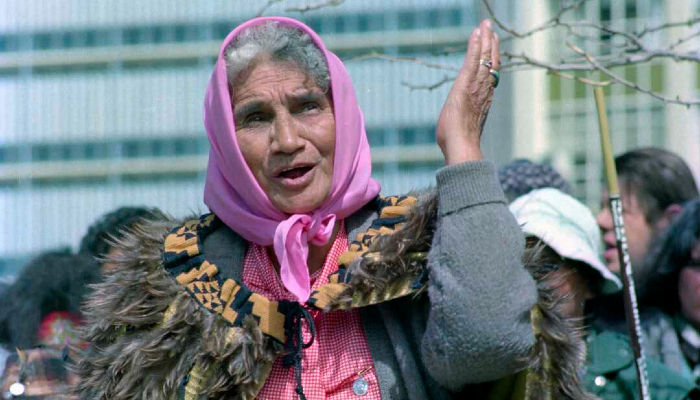
Dame Whina Cooper (1895–1994)
Where can I find information about Dame Whina Cooper and the land march of 1975?
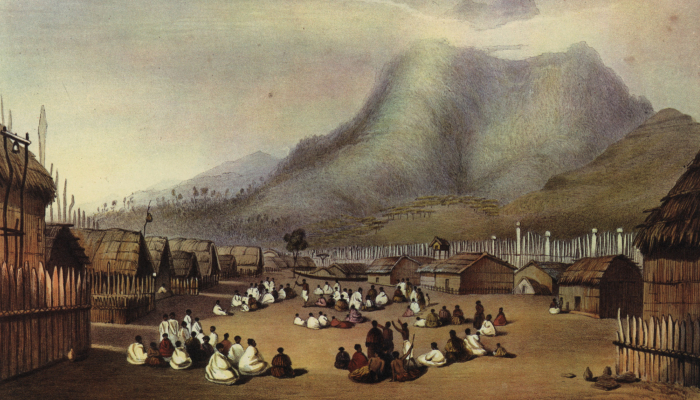
Māori history
Where can I find information about Māori history?
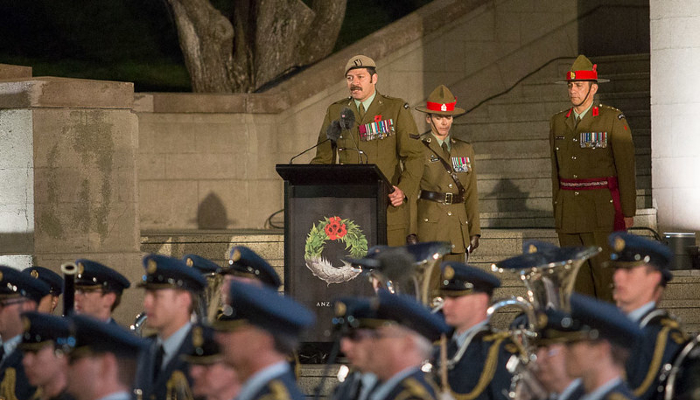
Māori leaders and heroes
Where can I find information about Māori leaders and heroes?
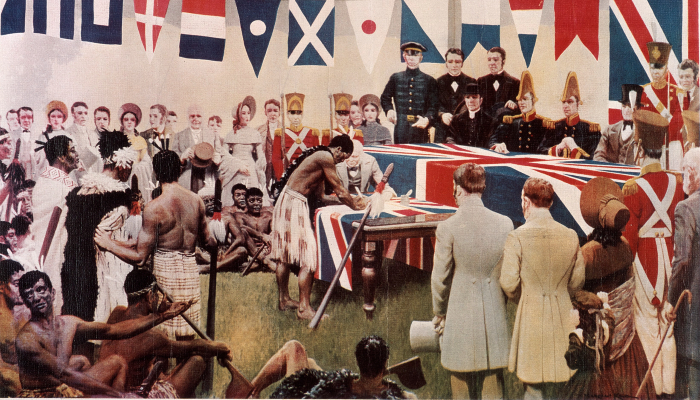
Treaty of Waitangi
Where can I find information about the Treaty of Waitangi - Te Tiriti o Waitangi?
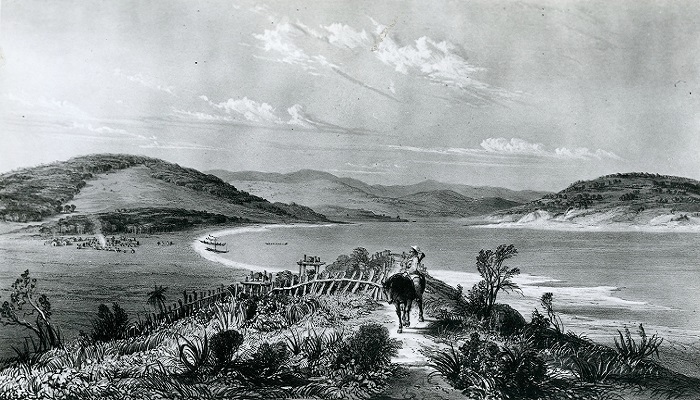
History (New Zealand)
Where can I find information about New Zealand history?
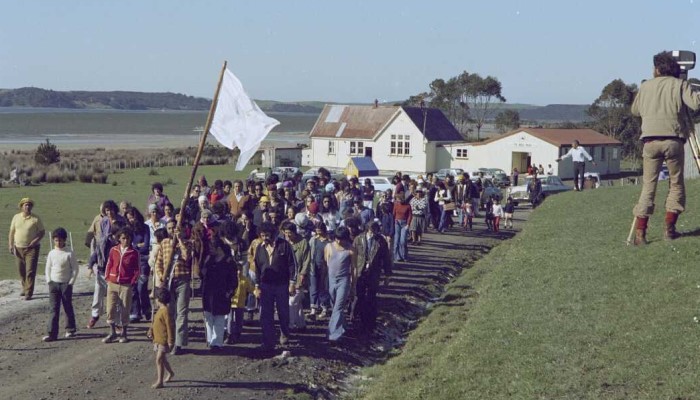
Events of Northland
Where can I find information about the local histories of Northland | Te Tai Tokerau?
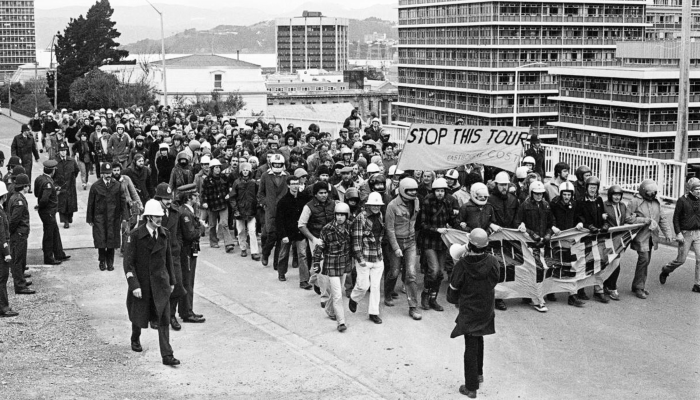
Events of Wellington
Where can I find information about the local histories of Wellington | Te Whanganui-a-Tara?
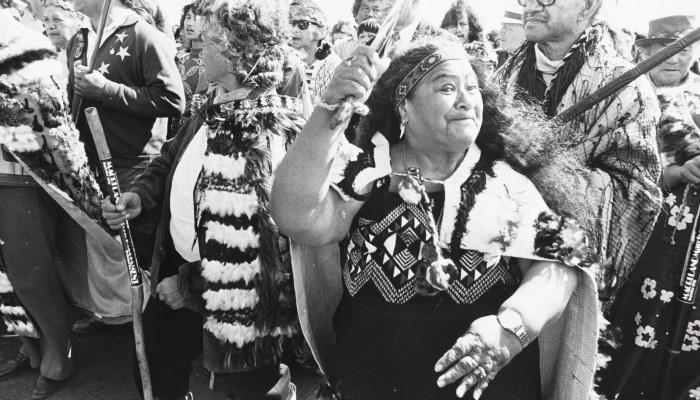
Mana in Māori society
Where can I find information about the local histories of Auckland | Tāmaki Makaurau?
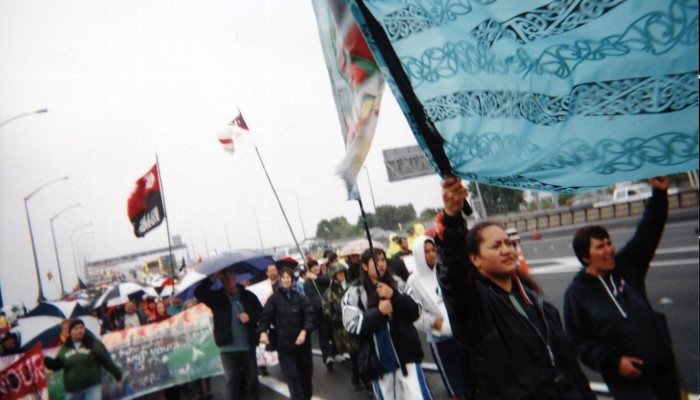
Sovereignty vs rangatiratanga: wars, laws and policies
Where can I find information about the local histories of Auckland | Tāmaki Makaurau?
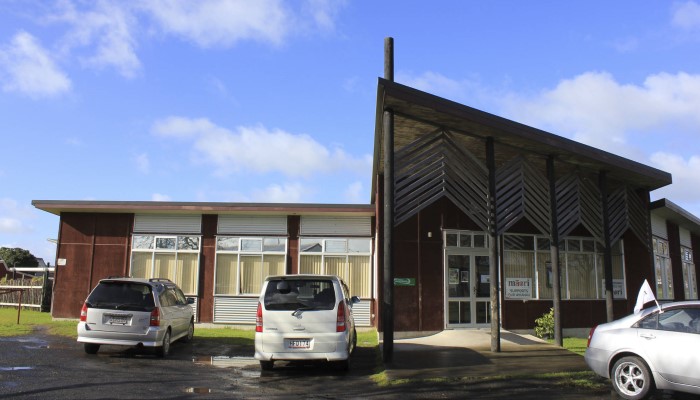
Urbanisation and being Māori
Where can I find information about the local histories of Auckland | Tāmaki Makaurau?

Māori Land March 1975
Discover resources related to the Māori Land March.
